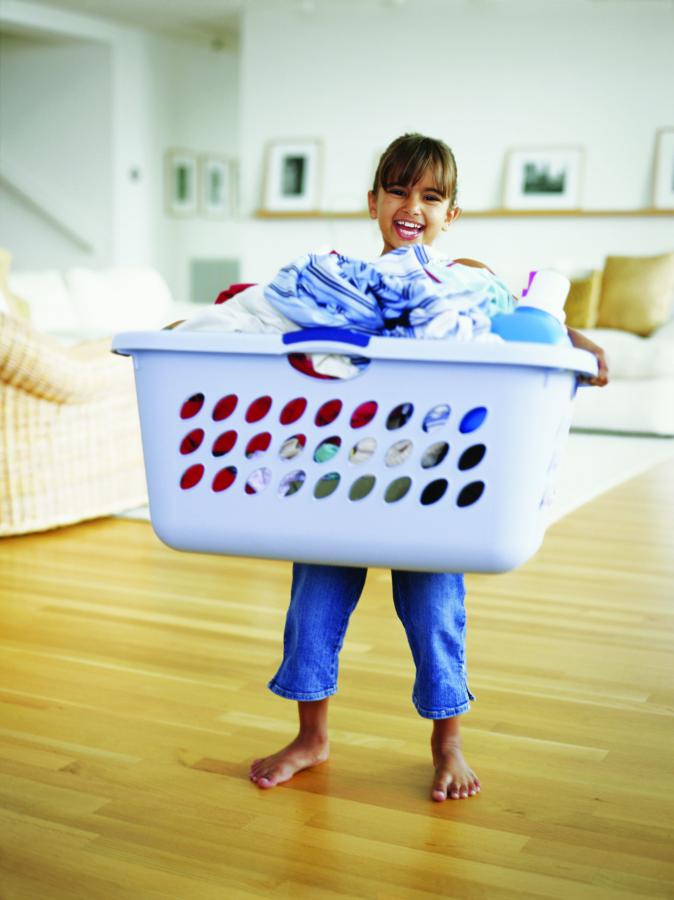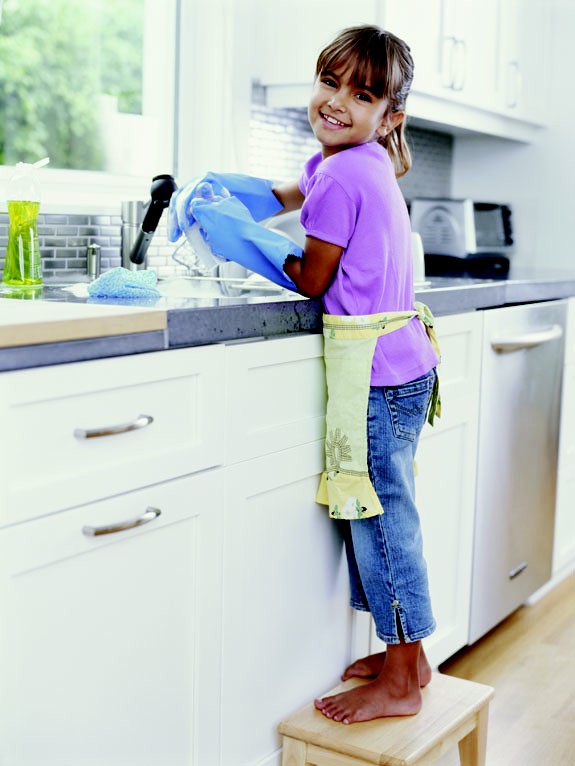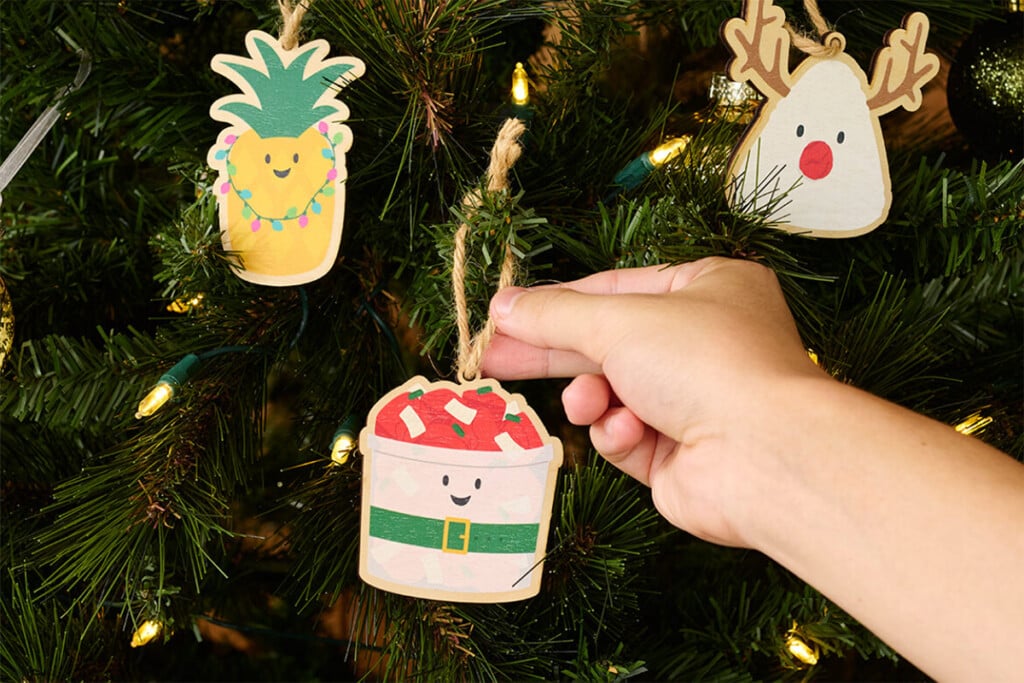Ages & Stages: How to Teach Children Responsibility
Children who are taught responsibility are less self-centered and more mature for their ages.
Are your children thoughtful? Do they pick up after themselves? Are they helpful with house and yard work? If not, consider this: Children who are taught responsibility are less self-centered and more mature for their ages.
When should responsibility training begin? At what ages and stages are children able to contribute to the family team? How do parents introduce the concept of responsibility and reinforce its value?

Girl doing laundry
Babies & Toddlers
Children understand more than we think and are able to do more than we expect. Using word games, songs and activities, teach your child responsibility. As you pick up toys, the following words are sung to the tune of Farmer in the Dell; I put away my toys, I put away my toys, I’m big enough to help at home, I put away my toys.
Even babies learn that behavior brings consequences. If you’ve told a child something is hot and he or she touches it anyway, HOT is quickly learned. If a child throws a sippy cup from the highchair, don’t rush to pick it up. Take your time and remind the child that we don’t throw things on the floor. If he or she does it again, put it out of reach. The child now understands that throwing a cup means you will remove it.
Preschoolers
Preschoolers are always on the go. Putting things away, finishing a task and carrying their own belongings take too much time. We can’t expect preschoolers to do things they are unable to do, but we should expect them to do what they can. Preschoolers like to feel needed and will enjoy songs and activities that reinforce responsible behavior.
Have your child carry his or her own lunch box, book bag, etc., when on the go. It may be faster to do it yourself, but training your child now saves you time later. Your child can also help with simple chores at home. Some things you can reasonably expect him or her to help with include making his or her bed, packing lunch, setting the table, folding laundry, etc. Work together and talk about how he or she has been a big helper.

Girl washing the dishes
Elementary Students
When students learn personal responsibility, they do better in the classroom, at home and everywhere in between. It’s very important, at this age, for things to be fair, and they find a certain security in rules. A wise parent capitalizes on this while continuing with responsibility training. Make a handful of sensible rules and explain the consequences for breaking them.
If sports equipment is left outdoors at night, it’s taken out of circulation for a day or two. If this seems harsh, consider the alternative: constant reminding, nagging, and tension between parent and child. When you make a rule and it is broken, follow through with the consequences. Your child may complain, but will also respect you for being fair.
As elementary children mature, begin adding other responsibilities, such as loading the dishwasher, sweeping the porch, vacuuming, pulling weeds, folding laundry, preparing a salad for supper, etc. As you train them, work alongside while explaining the steps involved.
Keep a job chart for your child to check off each job as it is finished. If work is not completed or done properly, there should be consequences: loss of phone, computer or video game privileges, for example. Responsibility and the resulting consequences go hand in hand.
Training children to be responsible is one of the greatest gifts we can give them. It takes time, energy and dedication on the parents’ part, but the dividends are worth the investment.








